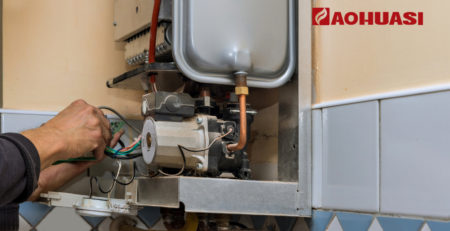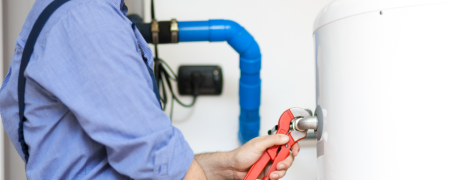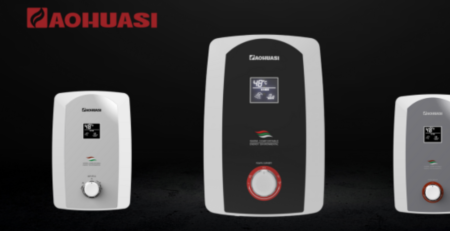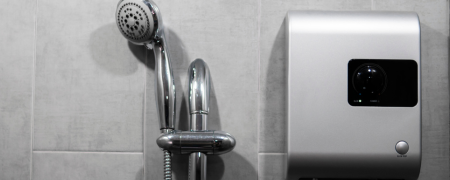The Ultimate Guide to Water Heater Heating Systems
In today’s fast-paced world, having access to a reliable and efficient hot water supply is essential for everyday living. Whether you’re taking a warm shower in the morning or washing dishes in hot water, a water heater heating system plays a crucial role in maintaining comfort and hygiene. In this comprehensive guide, we will delve into the world of water heater heating systems, exploring how they work, the different types available, and tips for optimizing their performance.
Table of Contents
- Introduction
- How Does a Water Heater Heating System Work?
- 2.1 Understanding the Basics
- 2.2 Types of Energy Sources
- Types of Water Heater Heating Systems
- 3.1 Tankless Water Heaters
- 3.2 Storage Tank Water Heaters
- 3.3 Heat Pump Water Heaters
- 3.4 Solar Water Heaters
- Factors to Consider When Choosing a Water Heater
- 4.1 Energy Efficiency
- 4.2 Size and Capacity
- 4.3 Installation and Maintenance Costs
- Installation and Maintenance Tips
- 5.1 Proper Installation
- 5.2 Regular Maintenance
- Common Issues and Troubleshooting
- 6.1 Insufficient Hot Water
- 6.2 Leaks and Drips
- 6.3 Strange Noises
- Advantages of Upgrading to a High-Efficiency Water Heater
- Eco-Friendly Water Heating Solutions
- Conclusion
- FAQs
Introduction

Water heater heating systems are an indispensable part of our daily lives. Whether you’re planning to install a new one or looking to upgrade, it’s essential to understand the various options available and how they can benefit your household. In this article, we will provide you with all the information you need to make an informed decision regarding your water heater.
How Does a Water Heater Heating System Work?
2.1 Understanding the Basics
A water heater heating system works by using an energy source to heat water and store it for later use. When you turn on a hot water tap, the system delivers the preheated water to your faucet or appliance, ensuring a steady supply of hot water.
2.2 Types of Energy Sources
Water heaters can be powered by various energy sources, including electricity, natural gas, propane, and solar energy. Each energy source has its advantages and disadvantages, affecting factors such as cost, efficiency, and environmental impact.
Types of Water Heater Heating Systems
3.1 Tankless Water Heaters
Tankless water heaters, also known as on-demand water heaters, heat water directly as it flows through the unit. They offer energy efficiency and a continuous supply of hot water, making them an excellent choice for smaller households.
3.2 Storage Tank Water Heaters
Storage tank water heaters store and heat a specific amount of water in a tank. They are reliable and cost-effective but may run out of hot water during periods of high demand.
3.3 Heat Pump Water Heaters
Heat pump water heaters use electricity to move heat from the air or ground to heat water. They are highly energy-efficient and environmentally friendly.
3.4 Solar Water Heaters
Solar water heaters harness the power of the sun to heat water. They are a sustainable and cost-effective option, especially in sunny regions.
Factors to Consider When Choosing a Water Heater
4.1 Energy Efficiency
Selecting an energy-efficient water heater can lead to significant cost savings over time. Look for models with high Energy Factor (EF) ratings.
4.2 Size and Capacity
Choosing the right size and capacity ensures that your water heater can meet the hot water demands of your household.
4.3 Installation and Maintenance Costs
Consider installation and maintenance costs when budgeting for your water heater. Proper installation and regular maintenance can prolong its lifespan.
Installation and Maintenance Tips
5.1 Proper Installation
Professional installation is essential to ensure your water heater functions correctly and safely.
5.2 Regular Maintenance
Regular maintenance, including flushing the tank and checking for leaks, can prevent issues and extend the life of your water heater.
Common Issues and Troubleshooting
6.1 Insufficient Hot Water
Learn how to troubleshoot and address issues like not having enough hot water.
6.2 Leaks and Drips
Discover common causes of leaks and drips and how to fix them.
6.3 Strange Noises
Understand the potential reasons behind unusual sounds coming from your water heater.
Advantages of Upgrading to a High-Efficiency Water Heater
Upgrading to a high-efficiency water heater can result in energy savings, reduced utility bills, and a lower carbon footprint. Explore the benefits of making the switch.
Eco-Friendly Water Heating Solutions
Explore environmentally friendly water heating options like solar and heat pump water heaters to reduce your environmental impact.
Conclusion
A well-functioning water heater heating system is a vital component of any home. By understanding the various types of water heaters, their energy sources, and maintenance requirements, you can make an informed decision that ensures a consistent supply of hot water for your household’s needs.
FAQs
- What is the lifespan of a typical water heater?The average lifespan of a water heater is around 10 to 15 years, but proper maintenance can extend it further.
- Are tankless water heaters more energy-efficient than storage tank water heaters?Yes, tankless water heaters are generally more energy-efficient because they only heat water when needed.
- Can I install a solar water heater in a cloudy climate?While solar water heaters are most effective in sunny climates, they can still provide some benefits in cloudy regions.
- What should I do if my water heater is making strange noises?Strange noises may indicate sediment buildup or other issues. It’s best to have a professional inspect and repair the unit.
- How can I reduce my water heating costs?You can reduce water heating costs by setting your water heater to a lower temperature, insulating hot water pipes, and using energy-efficient appliances.
Access Now: https://bit.ly/J_Umma
This comprehensive guide has provided you with valuable insights into water heater heating systems. Whether you’re a homeowner looking to upgrade or someone curious about the technology behind hot water supply, you now have the knowledge to make informed decisions and keep your hot water flowing efficiently.






Leave a Reply